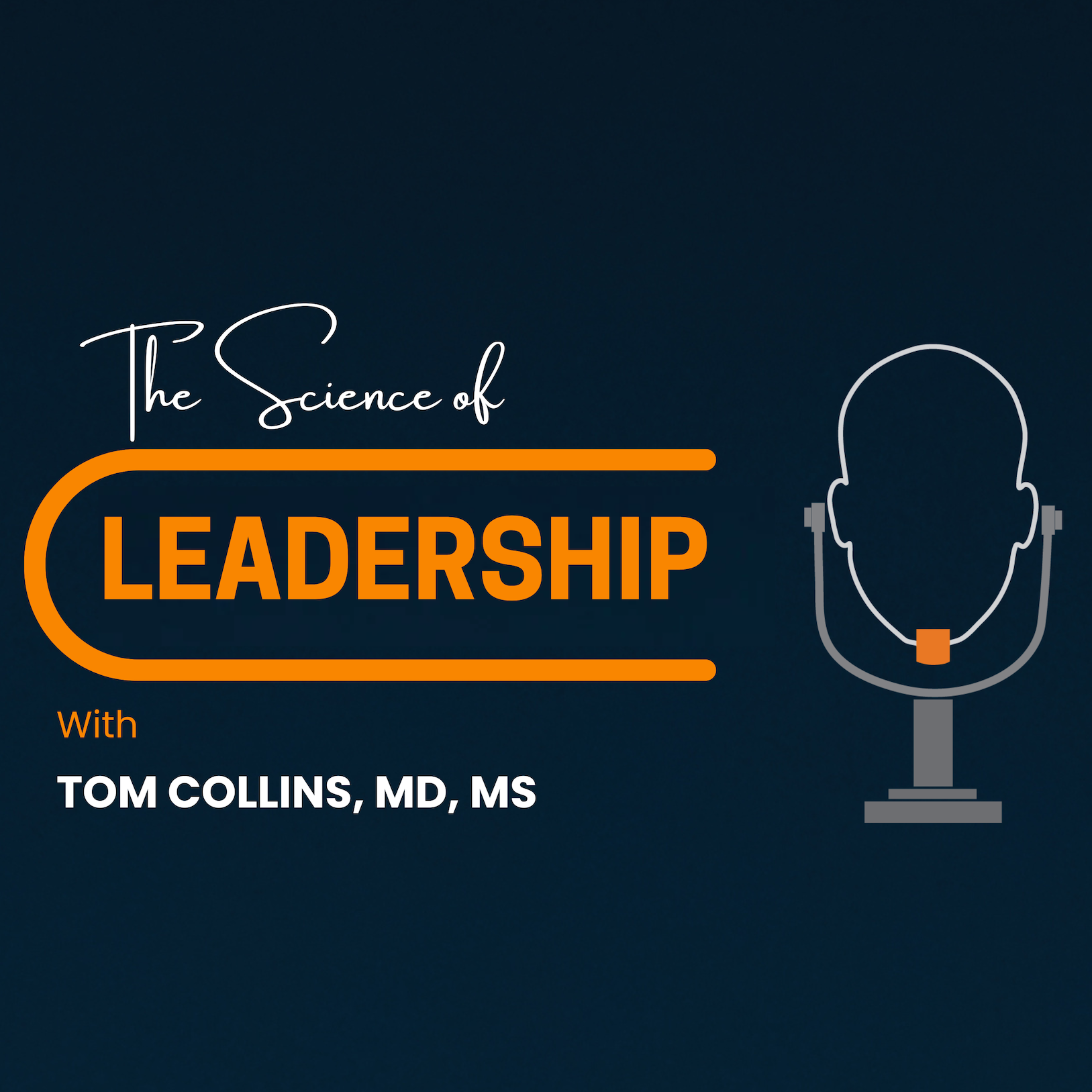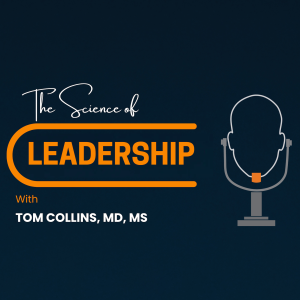
4.4K
Downloads
49
Episodes
The Science of Leadership is the podcast for listeners who want to build their leadership capabilities, providing valuable knowledge, insightful perspectives, and inspiring stories from expert leaders across various fields. The episodes range from one-on-one interviews with experts to discussions between the host and co-host. All episodes are supported by the latest scientific research in leadership, psychology, and other pertinent fields. Whether you’re an aspiring business leader, a healthcare professional, a community leader, or someone passionate about personal growth, our podcast is designed to equip you with the skills and wisdom needed to lead with confidence and impact. Join us on this journey to become a better leader and make a difference in your world!
Episodes

Tuesday Oct 08, 2024
Tuesday Oct 08, 2024
In this episode of @TheScienceofLeadership, Tom and Justin discuss how effective communication is crucial for leadership; it allows leaders to influence others and achieve common goals. They emphasize the need to understand the message before communicating it and the importance of listening and hearing others. They also discuss practical tips for effective communication, such as considering the audience and adjusting the delivery style. Tom highlights the importance of knowing when to speak and when to let others speak, and the goal of communication being to make the team better and achieve the shared vision.
Key concepts include communication, leadership, influence, clarity, consistency, thinking, emotion, cognitive load, decision-making, self-regulation, understanding, listening, hearing, audience, delivery style, and teams.
Key Takeaways
- Clear and consistent communication is crucial for effective leadership.
- Leaders need to spend time thinking about what they want to say and get it right in their own mind first.
- Emotion and pride can hinder effective communication, so leaders must manage their impulses and regulate their emotions.
- Effective communication requires practice and mastery of the message.
- The science behind communication in leadership emphasizes cognitive load, decision-making processes, and self-regulation. Effective communication in leadership requires understanding the message before communicating it.
- Listening and hearing others are crucial aspects of communication.
- Consider the audience and adjust the delivery style accordingly.
- Know when to speak and when to let others speak.
- The goal of communication is to make the team better and achieve the shared vision.
Sound Bites
- "Communication needs to be clear and consistent when we talk about leadership."
- "If you don't know what you want to say, no one else will know what you are trying to say."
- "Communication is important in leadership because it is how you influence someone else."
- "Makes my job easier."
- "One thing you touched on there, which we've gone a little bit on the other side for this talk, is we've been focusing on understanding it in our own mind before you communicate it."
- "A lot of people like to say, you have two ears and one mouth. You should be listening at least twice as much as you talk."
Key References
Self-regulation and Cognitive Control:
- Inzlicht, M., & Schmeichel, B. J. (2012). What is ego depletion? Toward a mechanistic revision of the resource model of self-control. Perspectives on Psychological Science, 7(5), 450-463.
Impact of Mindful Speech:
- Hülsheger, U. R., Alberts, H. J. E. M., Feinholdt, A., & Lang, J. W. B. (2013). Benefits of mindfulness at work: The role of mindfulness in emotion regulation, emotional exhaustion, and job satisfaction. Journal of Applied Psychology, 98(2), 310-325.
Prefrontal Cortex and Decision-Making:
- Miller, E. K., & Cohen, J. D. (2001). An integrative theory of prefrontal cortex function. Annual Review of Neuroscience, 24(1), 167-202.
Communication and Emotional Intelligence:
- Goleman, D. (1995). Emotional intelligence: Why it can matter more than IQ. Bantam Books.
Cognitive Load and Verbal Communication:
- Sweller, J., Ayres, P., & Kalyuga, S. (2011). Cognitive load theory. Springer Science & Business Media.

No comments yet. Be the first to say something!